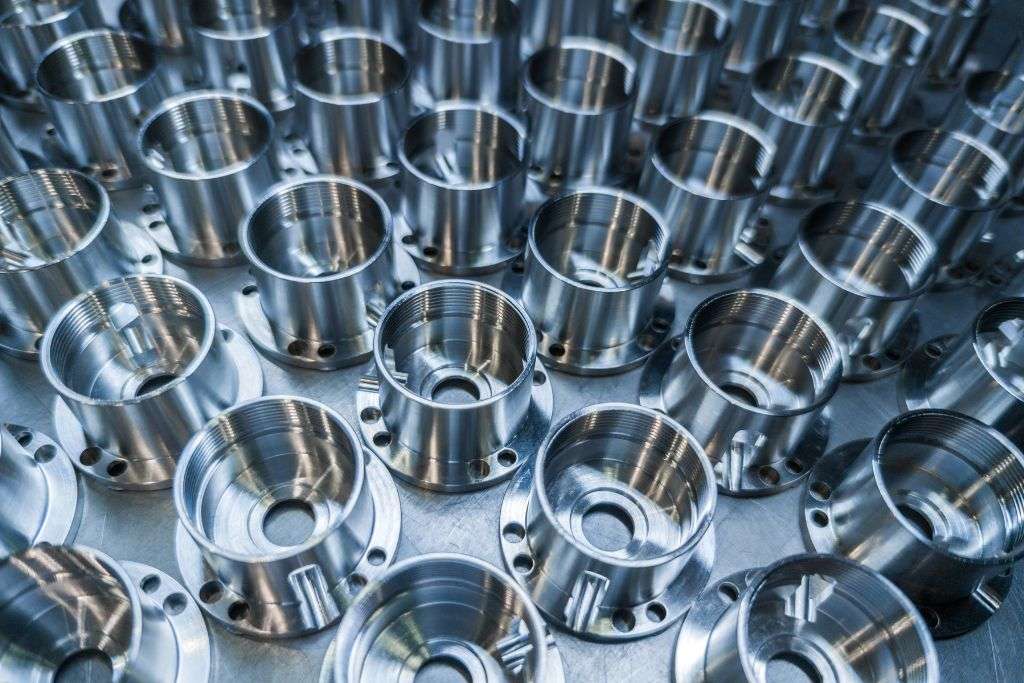
Aug 11,2023
In the bustling landscape of modern manufacturing, where technological advancements dance hand-in-hand with creativity, CNC metal parts have emerged as the unsung heroes behind the scenes.
These parts, intricately carved by Computer Numerical Control machines, play an indispensable role in shaping the products that define our era. But what exactly is the secret sauce that makes these parts such a game-changer!
How do factory CNC metal parts dealers, wholesale CNC metal parts factory, and CNC metal parts suppliers contribute to crafting tomorrow's innovations! Let's journey through the world of precision engineering and discover the answers.
Before we dive into the specifics, let's take a moment to grasp the magic behind CNC metal parts. Imagine a symphony of complex codes and machine movements choreographed with the finesse of a maestro.
These codes guide the CNC machines, akin to an artist's brushstrokes on a canvas, to carve and shape metal into precision components. From aerospace marvels to intricate medical instruments, CNC metal parts have an irreplaceable role in creating products that push the boundaries of what's possible.
When we talk about factory CNC metal parts dealers, we're stepping into the realm of expertise. These dealers are the bridge between innovation-hungry industries and the cutting-edge components they require. From automotive giants to electronics manufacturers, they're the go-to source for obtaining CNC metal parts that meet the strictest quality standards.
Wholesale CNC metal parts factory are the engines driving large-scale production while maintaining precision down to the micron level. These factory are akin to bustling beehives, with CNC machines humming tirelessly to churn out components that fuel diverse industries.
A hallmark of these wholesale factory is their unwavering commitment to quality. Each piece that emerges from these factory is a testament to the amalgamation of cutting-edge technology and skilled craftsmanship. It's not just about producing parts; it's about crafting components that stand as paragons of reliability and excellence.
CNC metal parts suppliers are the unsung heroes who ensure the smooth flow of this intricate ecosystem.
They provide raw materials that transform into awe-inspiring creations. From titanium alloys that grace aerospace projects to specialized medical-grade metals, these suppliers hold the threads of innovation together.
What sets these suppliers apart is their ability to collaborate and customize.
They're not just providers of metals; they're partners in progress. They understand that each innovation demands a unique solution, and they're poised to deliver exactly that.
In a world driven by innovation, CNC metal parts are the gears that keep the machinery of progress running smoothly.
From high-tech industries to everyday applications, these parts have transcended their status as mere components to become the bedrock of modern design and engineering. As we gaze into the future, one thing is certain: the journey of crafting tomorrow's innovations begins with the precision and promise of CNC metal parts.
In the grand tapestry of creation, factory CNC metal parts dealers, wholesale CNC metal parts factory, and CNC metal parts suppliers are the vibrant threads that bind imagination and reality. Together, they're crafting a future where the impossible becomes possible, one meticulously designed and expertly manufactured part at a time.
Absolutely not! While they indeed shine in industries like aerospace and electronics, CNC metal parts find their way into everyday items too. From kitchen appliances to children's toys, the precision of CNC machining is all around us.
CNC metal parts offer unparalleled precision, consistency, and speed compared to traditional methods. Digital control ensures minimal human error and faster production cycles.
Absolutely. The presence of wholesale factory and dealers means that even smaller businesses can access CNC metal parts without breaking the bank. This levels the playing field and fuels innovation across scales.